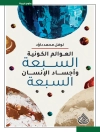In ‘Occultism and Common-Sense, ‘ Beckles Willson presents a compelling examination of the intersection between occult practices and rational thought within the late 19th-century cultural milieu. Emphasizing clarity and accessibility, Willson employs a distinctive literary style that blends scholarly analysis with vivid illustrations, drawing from a rich tapestry of historical and philosophical sources. The book critically explores the prevailing superstitions of the time, juxtaposing them against an emerging rational discourse, thus illuminating the complexities of human belief systems in a rapidly modernizing world. Beckles Willson, a noted figure in the early occult revival and a clear thinker with a keen interest in the metaphysical implications of contemporary thought, was shaped by the intellectual currents of his time. Living through a period marked by the tension of emerging scientific paradigms and traditional beliefs, Willson’s insights are informed by his own experiences within the esoteric communities, allowing him to provide an authentic perspective on the subject matter. His scholarly background further enhances the work’s authority and lends it a depth that challenges both skeptics and enthusiasts alike. I highly recommend ‘Occultism and Common-Sense’ to readers interested in the delicate balance between esoteric practices and rational inquiry. This thought-provoking volume not only enchants with its rich historical narrative but also invites readers to reflect on the convergence of belief and reason in their own lives, making it an essential addition to the library of anyone intrigued by spiritual philosophies.
Giới thiệu về tác giả
Beckles Willson, a writer with a keen interest in esoteric and metaphysical topics, carved a niche for himself with the publication of ‘Occultism and Common-Sense’. This work, exploring the realms of the unknown, showcases Willson’s capacity for deep thought and his ability to make complex mystical concepts accessible to the lay reader. Detailed in his scrutiny of supernatural phenomena, he remains balanced by applying a healthy dose of pragmatism to his inquiries into the occult. As an author, Willson has been appreciated for his articulate prose and the clarity with which he demystifies esoteric beliefs. His literary style often merges investigative rigor with a narrative flair that keeps readers engaged as they navigate the shadowy intersections of science and spirituality. ‘Occultism and Common-Sense’ serves as a testament to his efforts to bridge the chasm between skepticism and belief, appealing to those who dare to question the nature of reality. Willson’s contributions to literature continue to provoke thought and encourage discourse on the finer points of occultism and the human experience of the mysterious.












